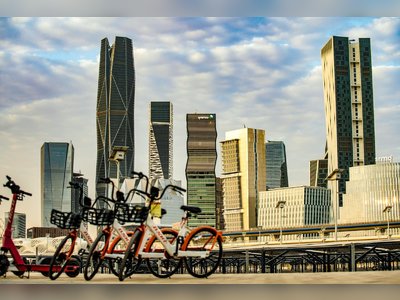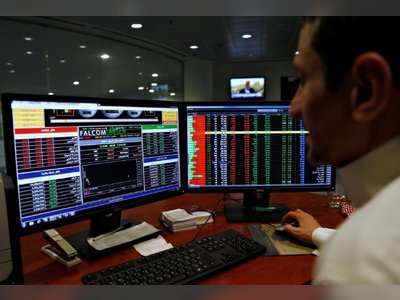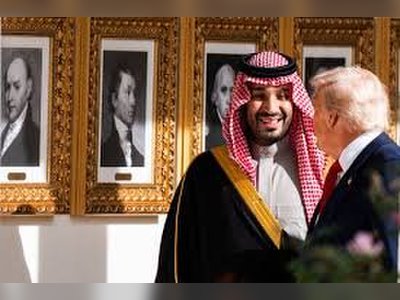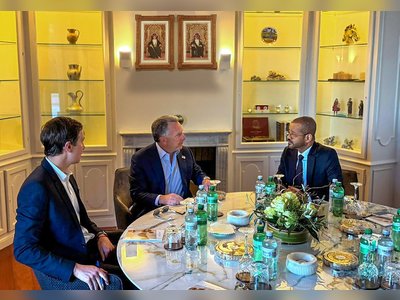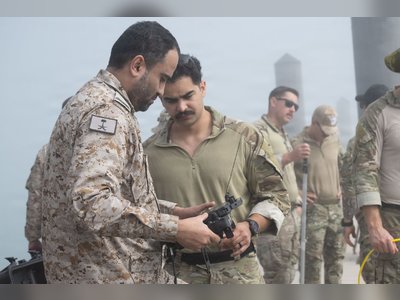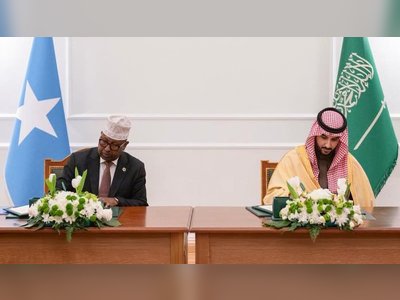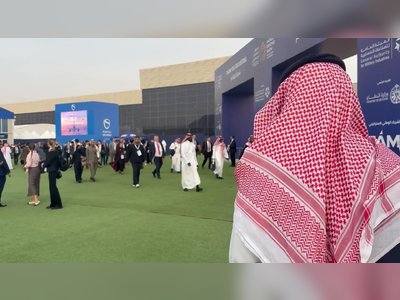Global Artistry Shines at Saudi Handicrafts Week Amid International Security and Humanitarian Challenges
Saudi Arabia hosts global artisans at Banan festival while the EU engages in regional security talks; meanwhile, Libya's detention of migrants, Sudan's urgent aid distribution, escalating Middle East conflicts, and Eastern Europe's nuclear tensions mark pivotal global issues.
Kicking off our international round-up, the second Saudi International Handicrafts Week, known as Banan, is unfolding in Riyadh, offering a vibrant display of artistry and cultural heritage with over 500 artisans from more than 20 countries. This colorful event, organized by the Saudi Heritage Commission, runs until November 29 and features notable talents such as contemporary silversmith Cara Murphy and Hungarian woodworker Bela Zalai, celebrating global handicrafts as a touchstone of cultural preservation.
Meanwhile, a delegation from the EU's Political and Security Committee is in Riyadh, delving into discussions on combating extremism and regional security at the Global Center for Combating Extremist Ideology. Under the leadership of Delphine Pronk, these talks extend to the Gulf Cooperation Council, addressing pivotal issues like climate change and foreign policy on the regional stage.
Turning to North Africa, Libya's 444 Brigade has detained over 300 migrants in a bid to stem Mediterranean crossings, highlighting the ongoing human rights concerns in the region. Libya's role as a major migration conduit amid political turmoil places thousands in perilous conditions, with reports of widespread abuses as migrants attempt to reach European shores.
In Sudan, as conflict continues, the World Food Programme is ramping up aid efforts, delivering critical food supplies to 1.5 million people amidst desperate conditions. The easing of government restrictions enables vital aid to reach famine-stricken regions, though logistical challenges persist due to local conflicts and bureaucratic hurdles.
In the Middle East, hopes for a ceasefire flicker as Israeli airstrikes hit Hezbollah targets in Beirut, yet Israeli and Lebanese officials cautiously express optimism for peace. Tensions surge with missile impacts and civilian alerts, while the United Nations voices concerns over the violence toll, even as diplomatic channels remain open.
Lastly, the conflict in Eastern Europe adds a worrying dimension, with Russia responding to Ukrainian missile strikes on its territory by lowering its nuclear weapons use threshold. The recent strikes, involving US-supplied ATACMS missiles, intensify the situation, prompting President Putin to decree strategic adjustments amid deepening geopolitical strains.
Meanwhile, a delegation from the EU's Political and Security Committee is in Riyadh, delving into discussions on combating extremism and regional security at the Global Center for Combating Extremist Ideology. Under the leadership of Delphine Pronk, these talks extend to the Gulf Cooperation Council, addressing pivotal issues like climate change and foreign policy on the regional stage.
Turning to North Africa, Libya's 444 Brigade has detained over 300 migrants in a bid to stem Mediterranean crossings, highlighting the ongoing human rights concerns in the region. Libya's role as a major migration conduit amid political turmoil places thousands in perilous conditions, with reports of widespread abuses as migrants attempt to reach European shores.
In Sudan, as conflict continues, the World Food Programme is ramping up aid efforts, delivering critical food supplies to 1.5 million people amidst desperate conditions. The easing of government restrictions enables vital aid to reach famine-stricken regions, though logistical challenges persist due to local conflicts and bureaucratic hurdles.
In the Middle East, hopes for a ceasefire flicker as Israeli airstrikes hit Hezbollah targets in Beirut, yet Israeli and Lebanese officials cautiously express optimism for peace. Tensions surge with missile impacts and civilian alerts, while the United Nations voices concerns over the violence toll, even as diplomatic channels remain open.
Lastly, the conflict in Eastern Europe adds a worrying dimension, with Russia responding to Ukrainian missile strikes on its territory by lowering its nuclear weapons use threshold. The recent strikes, involving US-supplied ATACMS missiles, intensify the situation, prompting President Putin to decree strategic adjustments amid deepening geopolitical strains.


